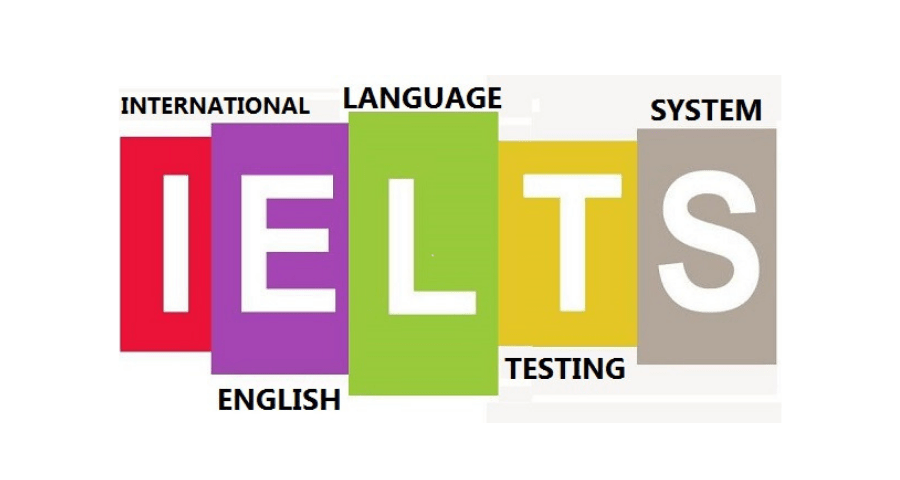by David Buckley
For the last 20 years, there has been a sharp rise in the number of Chinese students taking the IELTS test every year. Last year alone, half a million Chinese students took the test.
Why do they take it?
To reach the Holy Grail of high school or college in the UK or one of the Commonwealth countries; Canada, Australia or New Zealand. At a cost of 2020 yuan ($300), the test is not cheap. When we consider that the average monthly salary in Shanghai is around 10,000 yuan that cost is fairly considerable. But Chinese parents are more than willing to pay.
There has been a massive surge of Chinese students flooding into educational institutions in the west for the last 20 years. And the parents of these students are prepared to pay whatever it costs to ensure their offspring gets a place.
This means that apart from studying English in school — where students may have a lesson every day in English — there are also the English classes after school in one of the thousands of training centres clustered around any of the commercial hubs in Chinese cities; if not after school, then certainly at the weekend where all-day classes are common. It is not unheard of for students to sit in the same class for the entire day as they study for the IELTS test.
Some students may be lucky to have a private tutor. At a higher cost than the training centres, this is usually only for the children of richer families.
The goal in China is to pass the IELTS test.
Officially, there is no pass or fail in the test, but that is not how the Chinese see it. It is a pass or fail in terms of ‘is the band high enough for my son or daughter to get into college?’ That is all that counts. Hence, the race is on.
The middle-class in China is growing at an alarming rate and Chinese parents can afford to send their sons and daughters to some of the best schools and universities abroad. Spending large wads of cash on extra classes outside normal school hours for ‘IELTS English’ is no issue for these families, hiring costly private tutors means little.
The main gatekeeper is the British Council and the IELTS test. It all begins — or ends — there. If 500,000 Chinese students took the test last year at around $300 a pop, that means the British Council made $150,000,000 last year from China alone. Someone is getting paid. The question is:
Is this a racket?
Having worked for several schools in China where I taught IELTS, I believe it is possible to gauge a student’s ability in English within five minutes.That is all it takes. Give me five minutes with any student of English and I can determine whether they have a reasonable command of the English language or not. And it’s not because I have hidden ESL powers. I am not some kind of IELTS guru. This is something that thousands of teachers can determine of any English student.
I have met students and within a few minutes, I know what kind of level they have in English. Some have shown that they have a high level in speaking the English language while others are clearly in need of some extra work. It’s common sense and it doesn’t take the required 11 to 14 minutes as stated in the speaking part of the IELTS test. It doesn’t need the student to make a small speech for one to two minutes. It doesn’t need an extended conversation about anything else.
But in the IELTS test, there needs to be some strong justification for the cost. If parents lashed out 300 bucks for a test that only took five minutes they might have questions about the validity of it. Therefore, 11 to 14 minutes and three parts. A second part where the student pontificates on the topic of beekeeping, a precis of the education system of Peru or a contrast between shopping malls of today and yesteryear.
The British Council has to justify the cost and so they create a more convoluted test so they can charge $300. Essentially, the IELTS test exists for one main reason only. Money.
And it is not only students that take the test. Thousands of nurses are required to take the IELTS test if they wish to pursue a career in the UK or Commonwealth countries. Agents from the UK round up Chinese nursing staff, offering them a work placement in Britain but it still comes down to getting the required band in the IELTS test.
People wishing to emigrate and start a new life abroad.They all have to take the test. The British Council effectively holds the keys to many channels of people trying to enter the UK, Canada, Australia or New Zealand.
In the last few years, Australia has introduced its own testing system for students trying to enter middle school or high school in the country, namely the AEAS test but for the large majority of students — and nurses and potential immigrants — the British Council owns the largest share.
As the IELTS test has become the altar to which all Chinese students, nurses and emigrants bow down to, it has created an entire industry to support it. Thus, we see all the thousands of training centres that pop up outside subway stations in downtown areas of Chinese cities. As soon as you walk away from the exit you are accosted by advertising from training centres promoting their IELTS classes.
We guarantee a 6.5!
All our teachers are native English speakers!
In fact, you don’t even need to leave the subway station. Announcements blare out of speakers on the subway trains, telling passengers where to find the bestest and nearest IELTS training school.
Then in every bookstore, we can see IELTS books.
-
Essential vocabulary for IELTS.
-
Writing for IELTS.
-
Listening for IELTS.
-
Everything you ever wanted for IELTS.
And if that were not enough, there are all the thousands of books that students can buy online to help them smash the IELTS test. Amazon lists over 1000 books to help students with the IELTS test. Many of them seem fairly earnest — an academic approach to the test itself. Then there are all the bargain-basement books that promise the usual short-cuts and tricks.They use words like secrets, ace and success as though taking the IELTS test is like some kind of formula that once learned leads to victory.
Having read all the books students can then turn to YouTube. No shortage of IELTS channels there. Every one promising the masses how to achieve a 6.5, a 7 — no, a perfect 9! — in two weeks. Because that’s all that is needed. A mere two weeks to reach the perfect score and then you can fly off to Manchester, Melbourne or Montreal.
Hundreds of blogs make the same promises. They all try to game the IELTS test. Find short-cuts, tricks and sleight of hand. Few of them tell the truth. That to pass the test, the student really should have a decent level in all the English skills — that to practice General English would be much better than to practice IELTS English. But effectively that is what they are all preaching. How to game the IELTS test, when in fact, the very thing that students should work on is their General English.
In classes, students learn stock phrases they can use in the test. “Use these phrases”, say the teachers. And the students recite them until they are near perfect.
Come the day of the test and they may start a dialogue with the examiner with my all-time most-hated phrase:
There are two sides to every coin…
I have lost count of the number of students that use this when attempting to discuss a line of argument. They start with a look of bold defiance, but then stutter and choke as they have little of any substance to say afterwards.
Another well-worn phrase: To broaden my horizons.
Every Chinese student uses this when describing why they want to study abroad. I imagine IELTS examiners must groan inwardly every time they hear it as it is so overused. The phrase brought out like a magical password in the speaking test to that elusive 6 or 6.5 that they need.
Why do you want to study abroad?
To broaden my horizons.
And the books they buy. With titles like 5000 Words You Need to Use in the IELTS Test. And a thousand kids go home on the subway in the late evening after class, poring over endless lists of words.They recite the words with no context, no understanding how to use the words by themselves.What use is this if the students cannot discuss and debate certain topics with their peers and teachers after they arrive in Canada or Australia?
Success in the test should not be the goal of taking the test. The goal should be the ability to speak English and have conversations in a wide variety of topics, to write clearly. And why is this happening? Because the British Council have commodified the IELTS test. The IELTS test has become the ultimate goal. Not English.
Chinese students would benefit greatly from improving their General English skills, not learning tricks for the IELTS test. If they had a more solid foundation in their General English skills, they would stand a better chance in the test. Plus, they would fare better in the classroom once they arrive at a school or college abroad. No longer would they be stumped when the teacher in England or Australia raises a point and all the class begins to discuss it.
Chinese students study English skills such as reading but have no real love for it.
They regard it as work. Because to them it is work.
The students should read a wide variety of texts to improve their General English. That should be the goal. To improve their ability to read a text and fully understand it. Not for any test considerations.
In speaking, to be able to express themselves about a topic and share their points of view and thoughts. Not to ensure they are using all the key phrases and vital vocabulary to game the IELTS test.
The British Council should be much more involved in this process.
There should be an emphasis to treat the students as students, not customers. This should come from the training centres but primarily the British Council. The British Council promotes IELTS awareness but again it talks mainly about the test, not gaining better General English skills to be able to communicate effectively with native English speakers.
The students must have a good level in General English before even considering the IELTS test.
It would be a great idea if the British Council implemented a pre-IELTS test that they could then encourage all training centres and institutions to use. Not just in China, but worldwide.
Even better if students could enter a British Council office in Shanghai, Beijing or wherever they are and have a test — at very low cost or free of charge — to see where they stand to take the IELTS test. The British Council should provide this service so that students do not waste their time gazing at huge books with endless lists of irrelevant vocabulary. That they don’t learn useless phrases or rote-learn scripts for answers to questions the examiner may or may not ask them.
Encourage students to learn English so they can communicate effectively with others in English. Not to study English merely for the IELTS test.







